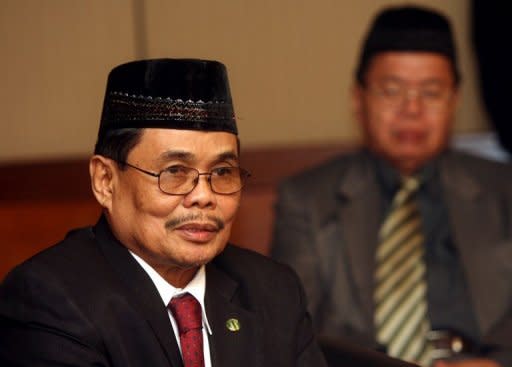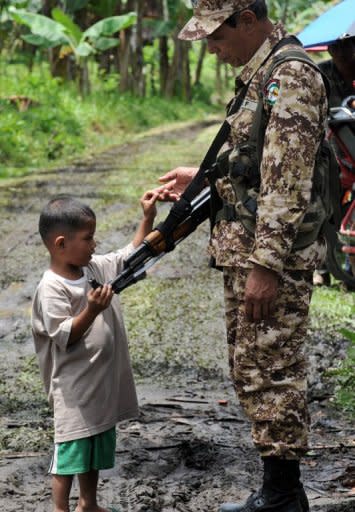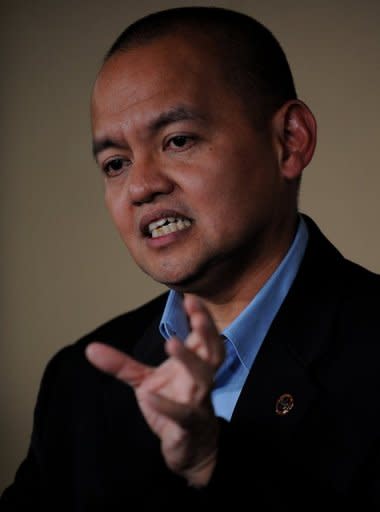Philippine Muslim rebels aim for peace plan
Muslim rebels waging a decades-long insurgency in the southern Philippines in which more than 150,000 people have died are aiming to sign a roadmap for peace this year, their chief negotiator said. The planned accord would outline steps to be taken to achieve a final peace pact between the the 12,000-strong Moro Islamic Liberation Front (MILF) and the government before President Benigno Aquino steps down in 2016. "We can see the light at the end of the tunnel and believe we are 85 percent sure it will be signed by the end of the year," MILF chief negotiator Mohagher Iqbal told AFP on Sunday, referring to the roadmap both sides have been working on. He said a crucial moment would come during the next round of peace talks in the Malaysian capital Kuala Lumpur, which he expected would be held from October 2 to 5. "This meeting is really the peak time to hammer out some of the outstanding issues and come out with an agreement." The government is also aiming to sign the roadmap this year, according to its chief negotiator, Marvic Leonen. "We are looking at this framework agreement as the over-arching architecture of the peace process," Leonen said. "In this agreement, the entire roadmap of the peace process can be discerned." Both sides said there was a strong spirit of cooperation following months of intense negotiations, however they conceded many of the tough issues that derailed previous peace efforts had still not been agreed upon. "There (is) still some hard bargaining ahead," Iqbal said. There are roughly four million Muslims in the southern Philippine region of Mindanao, an area they see as their ancestral homeland dating back to Islamic sultanates established before Spanish Christians arrived in the 1500s. The MILF and other Muslim rebel groups have been fighting for independence or autonomy in Mindanao since the early 1970s. The rebellion has claimed more than 150,000 lives, most in the 1970s when all-out war raged, and left large parts of mineral-rich Mindanao in deep poverty. The MILF is the biggest and most important rebel group left, after the Moro National Liberation Front signed a peace pact with the government in 1996. Since opening peace talks with the government in 2003, the MILF has said it is willing to accept autonomy rather than independence. Leonen said the planned new roadmap would outline a new autonomous region in parts of Mindanao and spell out broad plans for a power-sharing deal there with the MILF. The MILF came close to a peace deal with the government, under the previous administration led by then-president Gloria Arroyo in 2008, that would have given them control over 700 townships and villages. But, amid furious protests from leading Christian politicians in the south, as well as the influential Catholic Church, the Supreme Court ruled that deal as unconstitutional. Two MILF commanders reacted to the court order by leading attacks on mainly Christian villages in Mindanao, with the unrest killing 400 people and displacing about 750,000 others. Leonen said the government had been consulting with officials in the south as well as congressional leaders in Manila to ensure their support for the planned new deal and avoid a repeat of 2008. "We should be able to tell the MILF we will defend it tooth and nail and we are prepared for the trajectory of the peace agreement," Leonon said. Among the toughest issues still to be resolved are the extent of the MILF's power in the autonomy and the exact terms of wealth sharing. Mindanao is home to vast untapped reserves of gold, copper and other minerals, as well being one of the country's most important farming regions.




